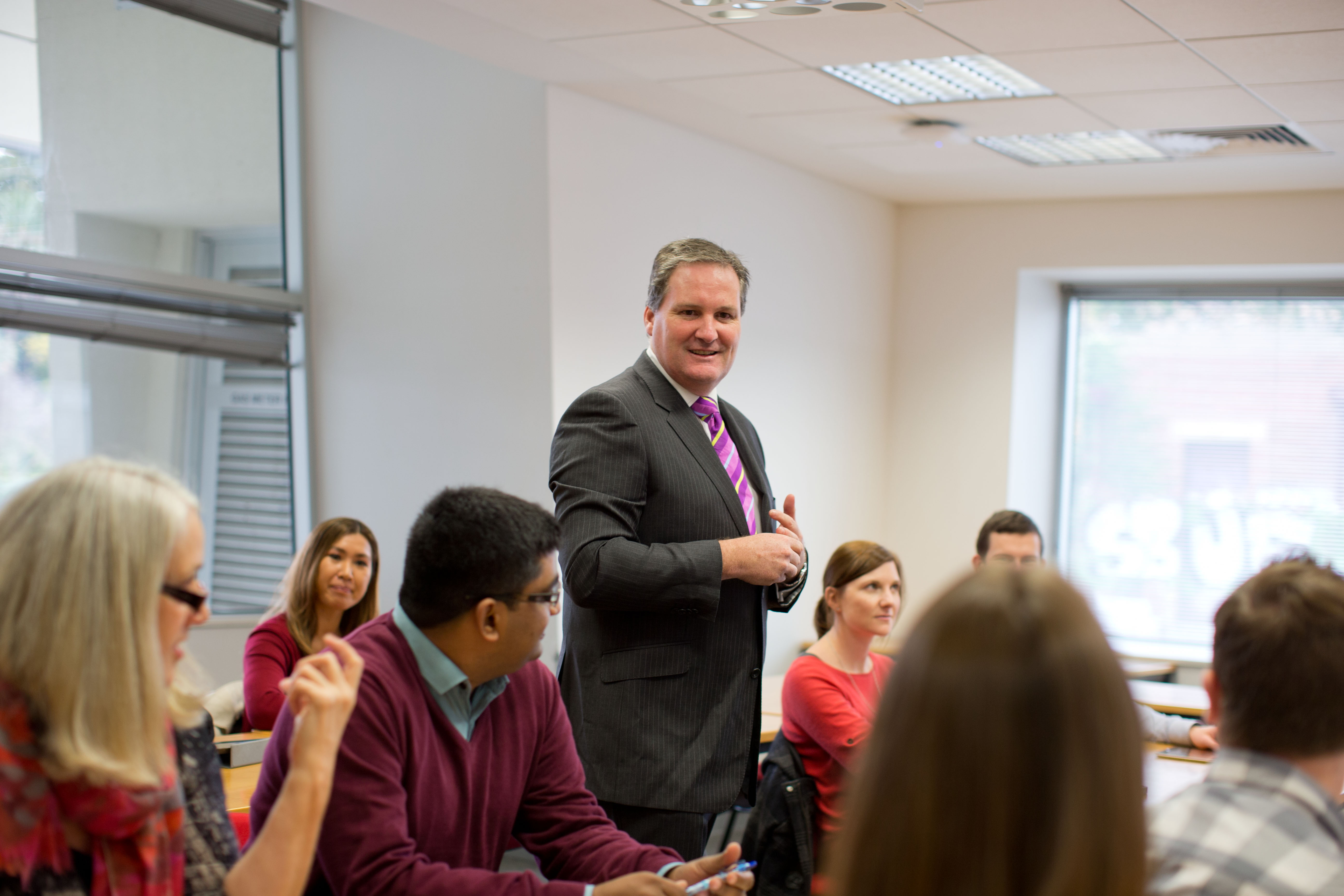Swinburne’s Executive MBA ranked best in Australia

Swinburne’s MBA (Executive) enables leaders to enter the next phase of their careers by building and teaching key skills for constantly changing business environments.
In summary
- Swinburne has placed number one in Australia in CEO Magazine’s Executive Master of Business Administration Rankings for 2021
- Swinburne’s MBA (Executive) program focuses on learning through action to build the skills of leaders in areas of governance, strategy, design thinking, finance and marketing
- A hallmark of Swinburne’s program is a leadership simulation experience facilitated by industry partner, Master Builders Victoria
Swinburne has been ranked as the top university in Australia to study an Executive Master of Business Administration (MBA) by CEO Magazine.
Swinburne placed first in Australia, and 17th in the world in the Global Executive MBA Rankings 2021 and maintained its tier one ranking for its MBA and MBA online.
Swinburne’s MBA (Executive) focuses on building and teaching the key skills business leaders and managers need to enter the ‘next phase’ of their careers.
Meaningful industry experiences are embedded into program, including guest lectures from experts in their fields, first-hand insights into a variety of workplaces, and authentic assessments and problem-solving for industry.
Students can also complete elective subjects in growth areas and emerging technologies changing business practices, such as fintech, cryptocurrencies, artificial intelligence and blockchain.
Building real-world leadership skills

Students practice challenging real-life management and workplace situations in the Building Leadership Simulation Centre built by Swinburne’s partner Master Builders Victoria.
A hallmark of the program is access to the only management and leadership simulation facility in the southern hemisphere, built by Swinburne’s partner Master Builders Victoria.
The Leadership, Innovation and Creativity unit gives students real-life practice in managing workplace issues and critical incidents in the simulated, but realistic, work site.
Director of the MBA (Executive) and Professor of Human Resource Management, Peter Holland, says students are given scenarios to work through with real people acting out the parts of their colleagues.
‘The scenarios are live and we can tweak them in real time to test the students, for example, adding in a phone call from an angry CEO,’ he says.
‘Students who go through the simulation can confidently say they have experience with managing the issues they faced. People are often put into management positions with little hands-on experience, but at the end of the day, management is a ‘doing’ subject.’
Opening doors to career opportunities
Haitham Barka completed the Executive MBA in 2020 and says the experiences he gained were instrumental in opening doors to more career opportunities after being a specialist in his industry for a long time.
‘I knew an MBA program would provide me with the required skills in different fields such as finance, human resource, leadership, sustainability, operations and marketing, which would complement my IT technical background – making me a more competitive professional.’

MBA (Executive) graduate Haitham Barka says his Swinburne experience kicked the next phase of his career into gear.
He says his Swinburne experience, particularly the leadership simulation, allowed him to take his career to the next level and secure a new position as a Technical Operations Leader at construction engineering company, Calibre Group.
‘During the interview, I was asked if I had experience with restructuring and employee retrenchment, to which I responded that I finished a leadership simulation on this topic as part of my Executive MBA,’ says Haitham.
‘I explained that this immersive experience involved participating in a realistic redundancy scenario. I highlighted how that experience developed my leadership skills and improved my competencies by providing 360-degrees performance analysis, and teaching new and practical ways to lead under pressure. My future employer was impressed and I secured the position.’
Dean of Swinburne Business School, Professor Keryn Chalmers, says Swinburne’s MBA (Executive) delivers what is highly valued by the market.
‘This includes design thinking, strategy, learning and governance, layered onto the essential mindset of entrepreneurship’
‘Students find the personalised, problem-centred, action learning approaches and strong industry connections most enriching and valuable for their career aspirations,’ she says.
The CEO Magazine Global MBA rankings
The annual CEO Magazine Global MBA rankings provide prospective students with a performance benchmark. The rankings analyse data from more than 160 global institutions across 27 countries in areas such as quality of faculty, international diversity, accreditation, faculty to student ratio, price, international exposure, work experience, professional development and gender parity.
-
Media Enquiries
Related articles
-

- Design
- Technology
- Health
- Law
- Education
- Business
- Science
- University
- Engineering
Swinburne moves up in Times Higher Education World University Rankings by Subject 2026
Swinburne University of Technology has performed strongly in the Times Higher Education World University Rankings by Subject 2026, with two subjects moving up the ranks.
Thursday 22 January 2026 -

- Sustainability
Threatened by a damning climate future, women in leadership could save Australia’s tourism and hospitality sector, research finds.
New Swinburne research found that women leaders aid better environmental policies, resource use, lower emissions, and drive environmental innovation..
Monday 13 October 2025 -

- Business
New Swinburne x Fair Work Commission report reveals insights into WFH
New Swinburne research has revealed both employees and employer’s experiences in Working from Home.
Tuesday 27 May 2025 -

- Business
Swinburne and KordaMentha launch state-of-the-art facility to combat financial crime
Swinburne Vice-Chancellor Professor Pascale Quester (left) and KordaMentha Partner Mark Korda (right).
Monday 24 March 2025 -

- Aviation
- Sustainability
- Engineering
Australian-made sustainable powders to drive the future of advanced manufacturing
A high-tech spinout from Swinburne University of Technology will deliver Australian-made High Entropy Material (HEM) powders, developed from recycled industrial feedstocks, to advanced manufacturing and 3D printing facilities.
Thursday 27 March 2025

